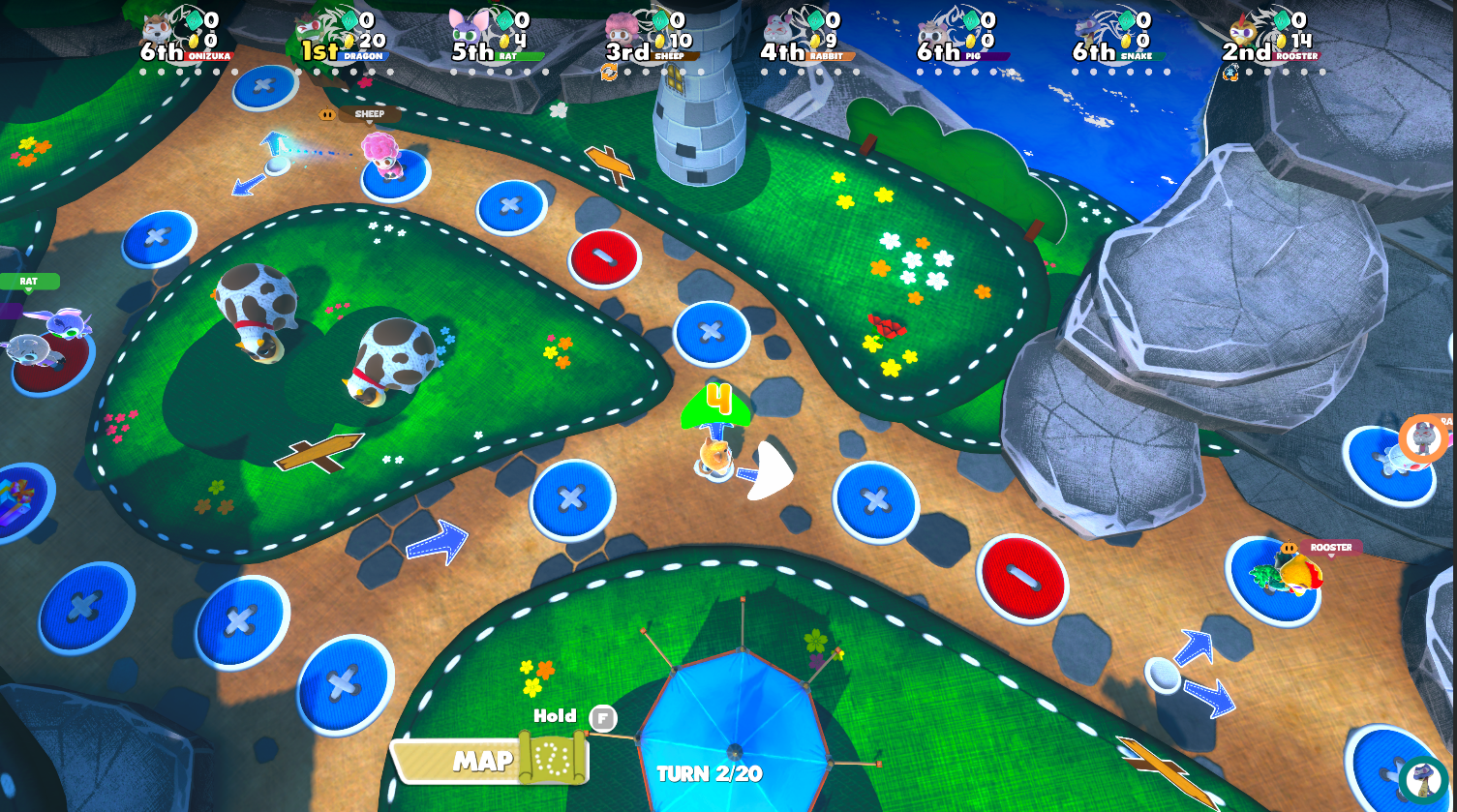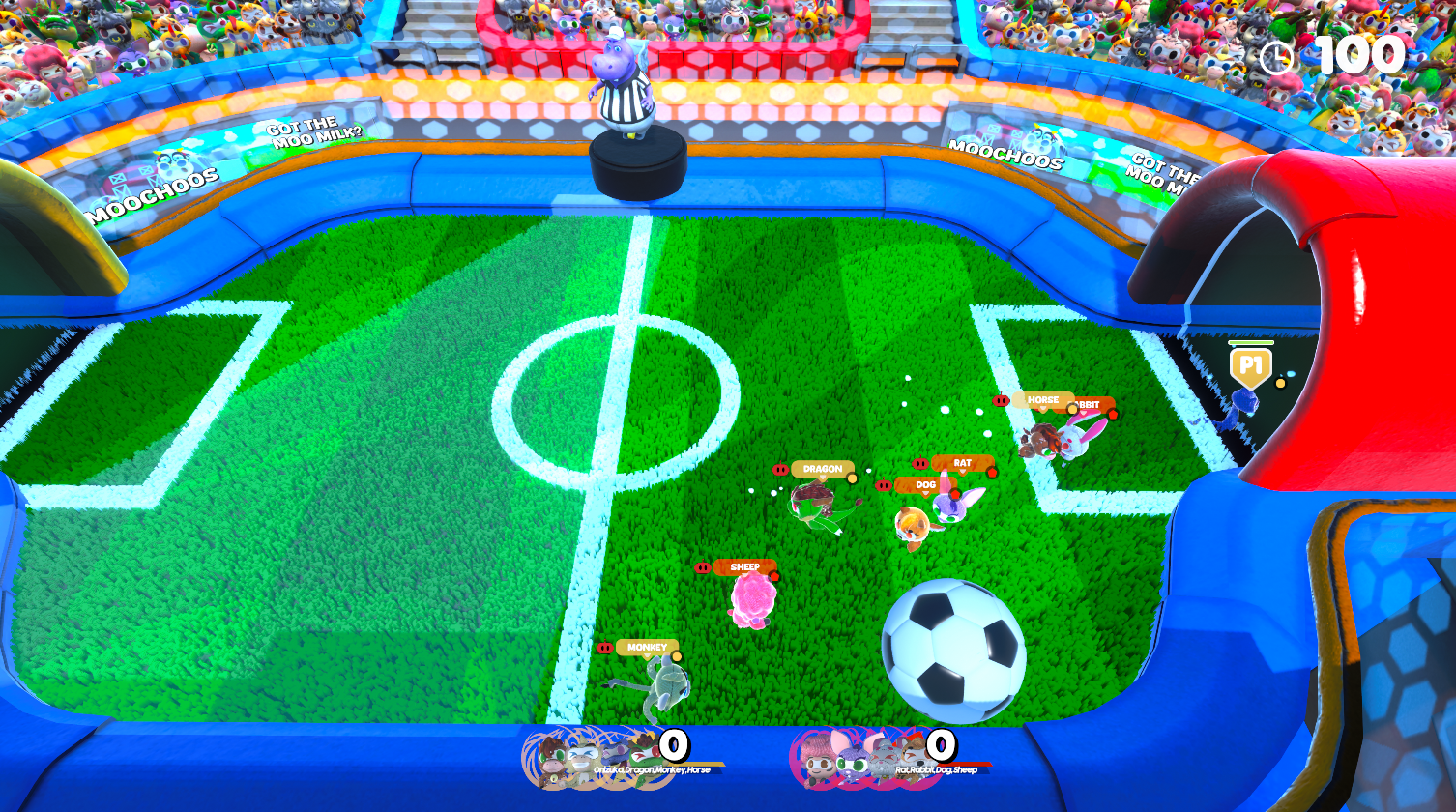Aus Indie Showcase winner INTERVIEW Lunars: Ultimate Party Game
Firstly, what is Lunars?
Lunars is a modern party game starring plush versions of the 12 lunar zodiac animals. We designed it to be accessible even to people who usually avoid the genre by keeping controls simple, cutting downtime with Blitz Mode so everyone moves at once, and removing permanent eliminations. Even if you lose, you can return as an antagonist to stir up chaos. The goal is to keep every player involved from start to finish so no one ever has the game taken away from them.
How does it feel being announced as a winner for PAX Aus 2025 Indie Showcase?
It feels surreal. You spend years wondering if your game will resonate, then one morning you wake up to an email saying you are in. For a two-person indie team without a marketing department, it feels like someone handed us a megaphone and put a spotlight on us. We’re nearing our release so timing could not be better.
How long have you been working on Lunars?
Just over four years. It started as a “maybe one or two years” project, which are famous last words for game devs.
Lunars: Ultimate Party Game
My first thought was Mario Party, but it looks like the next evolution. Was that the goal?
Mario Party was a huge inspiration, but we wanted to move the formula forward. Party games should be about inclusivity, where you can still have fun even if you are new to gaming or it is not your preferred genre. Waiting for your turn or being eliminated slows things down, so Lunars keeps everyone engaged from start to finish.
We also draw from all kinds of genres and ideas from our community. We are gamers ourselves, so there is no reason to limit inspiration to just one series when there is so much out there.
What kind of experience do you want players to have?
We want players yelling, laughing, and plotting revenge, but most of all just having fun in their own way. Party games should bring together people with different skill levels and tastes, and the best part for us is seeing players of all ages and backgrounds at events like PAX laughing together and forgetting their differences while they play.
What were some of the biggest challenges, and how did you overcome them?
One of the biggest challenges was rebuilding our networking system to handle latency more effectively. Another was building our community and earning the trust of players. On a personal level, learning how to push past comfort zones, stay accountable without burning out, and see criticism as a tool rather than an attack was just as important.
Lunars: Ultimate Party Game
How did you approach the art style?
Growing up as brothers playing the same games helped us keep our vision aligned. We were inspired by miniature worlds such as LittleBigPlanet. Since the Lunars are plushies, games like Sackboy and Yoshi’s Woolly World also played a role. Each board and minigame is designed as its own with unique colours and details.
How did you approach playtesting? Did feedback change the game?
Player feedback has been essential. We added a feedback form directly into the game’s menu so players can reach us at any time. Showcasing the game live lets us see what makes people laugh, what confuses them, and what ideas they naturally try. Many features have come from those moments.
What is it like to have 10k wishlists?
It is both exciting and a little intimidating. Over ten thousand people have essentially said, “We are interested”. It’s humbling to have that many people’s support and we definitely take that trust seriously, so we feel responsible to deliver a game that is worth their wait.
What is your background?
We are brothers with backgrounds in programming and multimedia design. We have worked on gamified training and education projects for companies, and like many devs, we have had our share of unfinished prototypes. Growing up with Nintendo consoles shaped our love for local multiplayer and colourful character-driven games.
Lunars: Ultimate Party Game
What made you decide to get into game development?
Wanting to be game designers like Miyamoto since we were nine and a healthy dose of ignorance in how much work dev is. The N64’s four-player multiplayer gave us some of our best gaming memories, and we have been chasing that feeling ever since.
What advice have you got for upcoming game developers?
Every game’s journey is different, especially for indies. What worked for one dev may not work for you. Focus on building a fun game, listen to your audience, speak to them, and earn their trust. We only have control over consistent quality and engagement.
What advice have you received that has stayed with you?
We stand on the shoulders of giants. No one can master every skill, so surround yourself with other developers, artists, and professionals. When they win, you win, and when you win, they win too.



